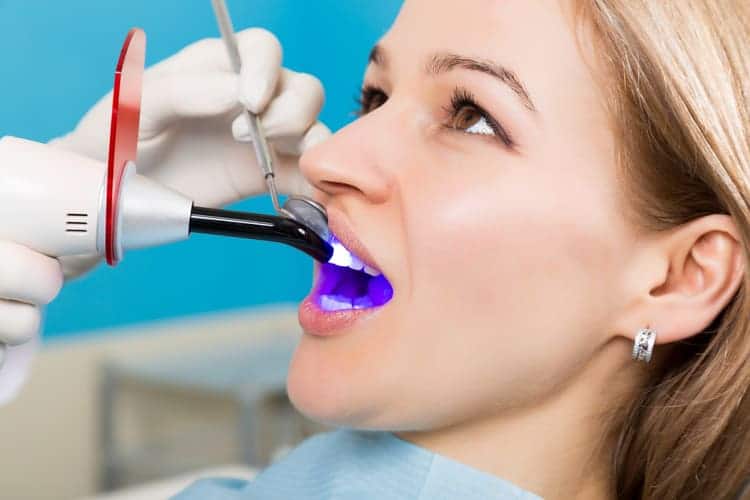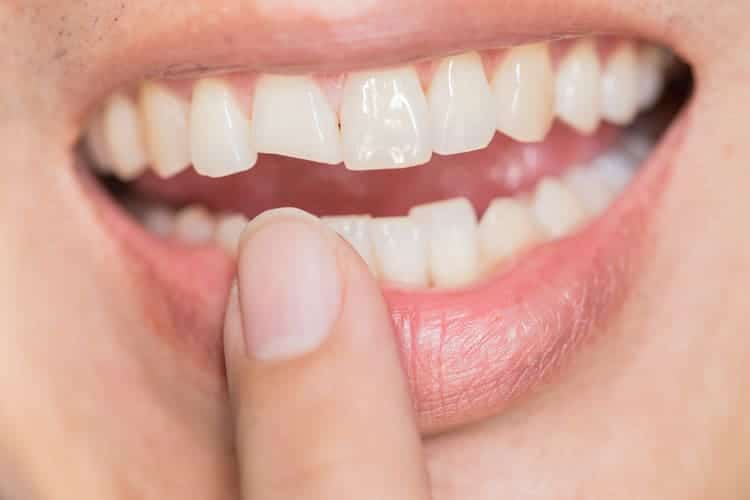Dental Bonding
If you have any type of discoloration on your teeth or have been unfortunate enough to crack a tooth, we can use dental bonding to make it like new. Dental bonding is a dental procedure that utilizes tooth-colored composite resin to repair damaged teeth while preserving natural tooth structure. It can even help individuals who have shortened teeth, by increasing their size. The best part is that a procedure usually only takes one visit to complete and is quite affordable.

What Are The Two Types of Dental Bonding?
- Composite Bonding: this type of bonding is used when there is a specific spot to treat. Generally, this is applied to teeth that have minor imperfections like very narrow gaps between the teeth, small chips, or very small cracks. It can also be used to build up teeth that have been worn down. The composite looks real and can be used on prominent, forward-facing teeth. Composite bonding is also used to treat tooth decay (cavity).
- Adhesive Bonding: this type of bonding is used when a restoration needs to be attached to a tooth. Adhesive bonding differs from composite in that it replaces the entire area of the imperfection and as such, is used with porcelain veneers, bridges, crowns and inlay/onlays.
How Do You Care for Bonded Teeth?
While most dental bonding procedures will last between five and ten years, there are some things that you can do to help take care of the bonded tooth and extend its time of life.
- Make sure that you are flossing daily and brushing twice a day.
- Do not bite your nails!
- Avoid eating/biting hard foods such as candy.
- Schedule regular dental cleanings.
How to Prepare for a Dental Bonding Treatment
There is no preparation needed on your part. Just make sure that your teeth are clean when you head into your appointment.
Are There Any Risks With Dental Bonding?
There are no major risks with this type of procedure. The only thing you need to keep in mind is that bonding is not as strong as your actual teeth, and as such, can chip or separate from your teeth if you are not careful. This is why it is recommended to avoid chewing on hard foods, eating things like ice, or biting down on your fingernails. In addition, the resin is not stain-resistant so coffee and tea should be limited. If you don’t want to limit your coffee or tea intake, make sure to drink water with it and brush your teeth afterwards.

Our Patient-Centric Approach to Your Dental Care Makes Us Different
Our dental practice focuses solely on providing you with the smile and teeth that you have always wanted through our results-oriented approach. We use personalized services to solve your dental problems, without ever upselling you on services you do not need or recommending a product that does little for you. We would rather give you peace of mind, by showing you results.
We have a wide variety of financing options to make treatment affordable.
- We work with patients that do not have dental insurance.
- We offer free consultations on many of our procedures and can provide second opinions for those who are unsure of the path presented to them.
- We utilize state-of-the-art technology to ensure that you get the best care possible at a price you can afford.
- We work with your insurance and file claims for you.
At Tampa Palms Dentistry, our practice is all about restoring, renewing, and revitalizing your mouth so that you can have the smile that you want and deserve. If you have any questions regarding dental bonding or think you may need dental bonding, call us today at (813) 333-1922.



